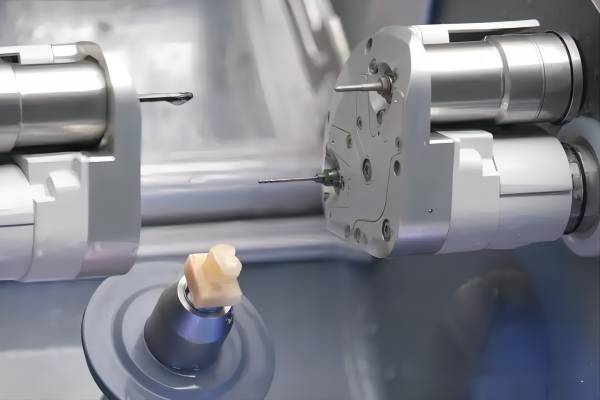
Privacy statement: Your privacy is very important to Us. Our company promises not to disclose your personal information to any external company with out your explicit permission.
CNC metal fabrication is replacing other manufacturing techniques in several industries. The medical field is considered to be one where mistakes are rare, and the same rules apply when manufacturing medical parts, as the field is concerned with human life, and even small mistakes can lead to serious health problems or even death. As a result, the machining techniques used by machinists to produce medical parts must support tight tolerances and high-precision measurements.
CNC metalworking is growing in popularity because of its ability to produce detailed and accurate results in large quantities, which has led to an increase in the number of manufacturers using CNC machines in the industry.
CNC machining is a manufacturing method in which tool movement is controlled by pre-programmed computer software. All medical products can be manufactured accurately and quickly with the help of CNC milling and turning. Let's look at the main advantages that create demand for CNC machining in the medical industry:
No fixed tools
CNC machining is unmatched in terms of quick turnaround and minimal investment in small production runs or even one-off products. Parts for the medical industry must often be manufactured quickly and in small batches. At the same time, CNC metalworking allows parts to be manufactured without specialized tooling, which can lengthen the manufacturing process but provide excellent quality and precision even without tools.

No quantity limitations
After creating a digital CAD (Computer Aided Design) file, you can easily build a cutting program from it with the push of a button. The coding application allows for the manufacture of individual parts or any number of parts with the highest degree of precision and accuracy. This is a huge benefit when creating one-off or one-off custom parts such as highly specialized medical devices, appliances, equipment, prosthetics and other medical or surgical products. While other programs require a minimum order quantity to obtain the required raw materials, making it impractical for some projects, CNC machining does not require a minimum order quantity.
High Tolerances
Many medical types of equipment require a large range of tolerances, and with CNC machines, this is easy to achieve. Surface finishes are often very good and require minimal post-processing, saving time and money, but this is not the most important consideration. In general, the most important thing to remember about medical supplies and equipment is that they must be fit for their purpose and any deviation from the standard can mean disaster.
Fast Machines
CNC machines are faster and can work 24 hours a day, 365 days a year. Aside from routine maintenance, repairs and upgrades are the only time manufacturers stop using their equipment.
Digital CAD files are lightweight and flexible
Product designers, medical experts and manufacturing professionals can quickly and easily transfer digital programs from one location to another. This technology significantly enhances CNC machining capabilities to produce high-quality, specialized medical devices and equipment solutions regardless of geographic location and whenever and wherever they are needed.This feature of CNC machining comes in handy, especially in time-critical medical environments.
November 17, 2024
November 16, 2024
August 27, 2021
August 26, 2021
PEEK ball is a special type of ball made of polyether ether ketone (PEEK), which has excellent chemical stability, abrasion resistance, and high temperature resistance.PEEK ball is widely used in...
PVDF Application Areas Different models of PVDF products are suitable for different application scenarios. According to application fields, PVDF can be divided into conventional grade products and...
Application Performance Advantages of MC nylon MC nylon is a new type of engineering plastics, due to its outstanding comprehensive performance, so that its status in engineering plastics is rapidly...
Types of nylon: 1. Nylon - 6 (PA6) Nylon -6, also known as polyamide -6, that is, polycaprolactam. Translucent or opaque opalescent resin. 2. Nylon - 66 (PA66) Nylon-66, also known as polyamide-66,...
Email to this supplier
November 17, 2024
November 16, 2024
August 27, 2021
August 26, 2021

Privacy statement: Your privacy is very important to Us. Our company promises not to disclose your personal information to any external company with out your explicit permission.

Fill in more information so that we can get in touch with you faster
Privacy statement: Your privacy is very important to Us. Our company promises not to disclose your personal information to any external company with out your explicit permission.